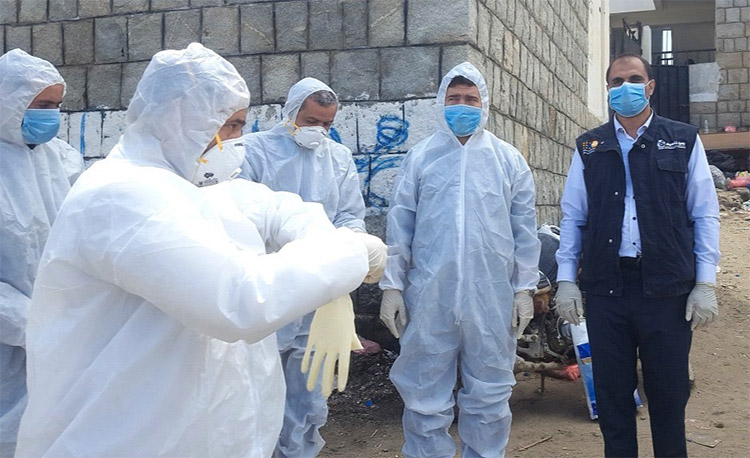Collective action and commitment is the only way to mitigate the pandemic
 2 May 2020 - To date, there are seven confirmed cases of COVID-19 in the south of Yemen, including two deaths, as declared by national authorities. No other cases have been officially reported to WHO, although we anticipate the virus is actively circulating throughout the country.
2 May 2020 - To date, there are seven confirmed cases of COVID-19 in the south of Yemen, including two deaths, as declared by national authorities. No other cases have been officially reported to WHO, although we anticipate the virus is actively circulating throughout the country.
Best practices have shown that when people are informed and warned about outbreaks early on, and where measures are in place to test, trace, isolate and care for cases, transmission of the virus can be controlled.
More than 215 countries, territories and areas have reported cases of the virus to date, and the pandemic has overwhelmed some of the most advanced and sophisticated health systems in the world. After five years of war, Yemen’s health system is fragile and facing catastrophic shortages. COVID-19 supplies in country are grossly insufficient.
Since the declaration of the pandemic, we have been presenting various evidence-based scenarios to ensure that health authorities have the full picture of how this virus may potentially affect 16 million men, women and children who make up over 50% of the population.
Operating on the assumption that community transmission is already taking place across the country, WHO and partners continue to support national and health counterparts with the limited resources at hand. Additional resources are being mobilised, in the context of major global shortages of essential supplies and equipment to respond to COVID-19. We continue to prioritize the most vulnerable and are working to identify ways of ensuring that a more reliable supply chain is established.
Health authorities are providing capacities for testing, treating and isolating suspected and confirmed cases, relying on established nation-wide hotlines and 333 rapid response health teams in the country who are working 24/7 to detect, investigate, test and refer suspected cases to designated health facilities.
Health authorities have also enhanced COVID-19 capacities in four central public health laboratories in Sana’a, Aden, Sayoun, and Taiz, which have full capacity to test for COVID-19. Four more public health laboratories will soon have similar capacity.
As long as even one case is unidentified and not properly treated, isolated and contacts traced, COVID-19 will continue to pose a significant threat to the Yemeni people and the country’s struggling health system.
Even in resource-poor settings, collective action integrating the full commitment of government, community groups, and the private sector can effectively mitigate the impact of the pandemic.


